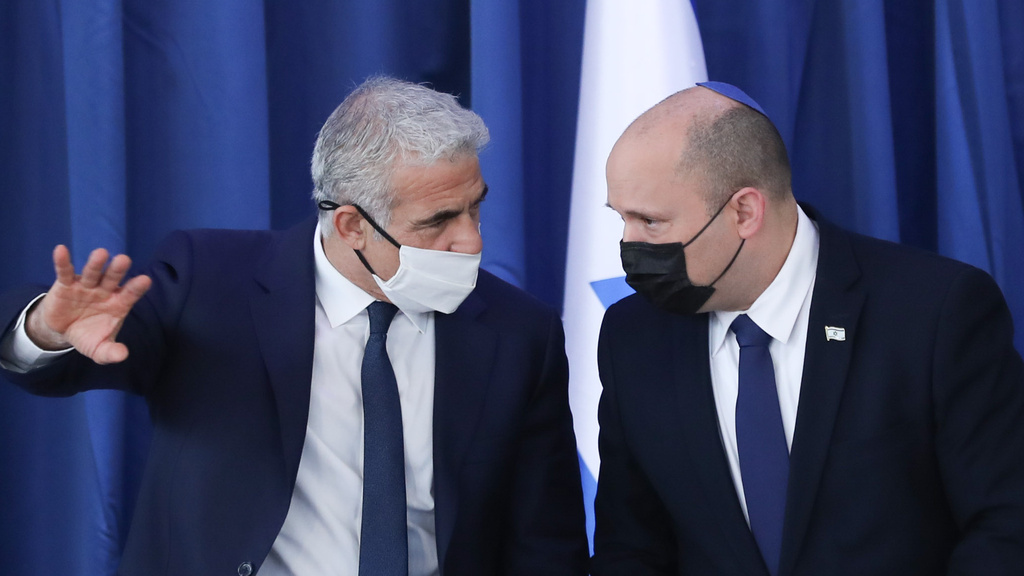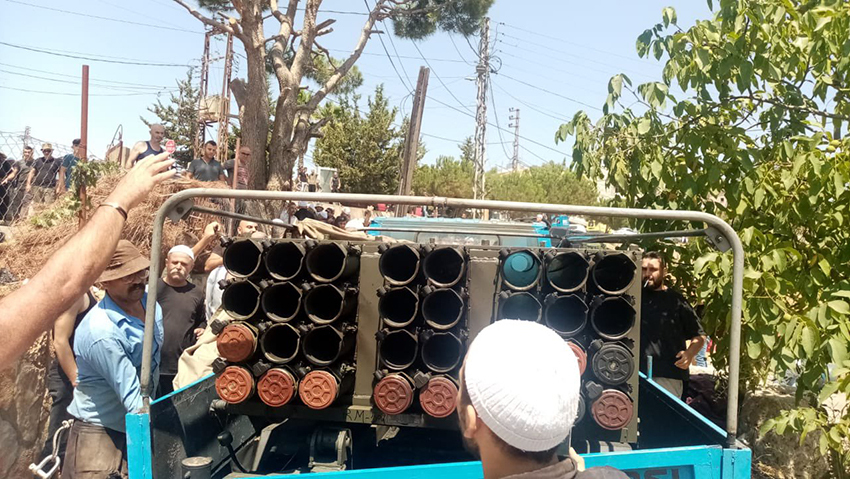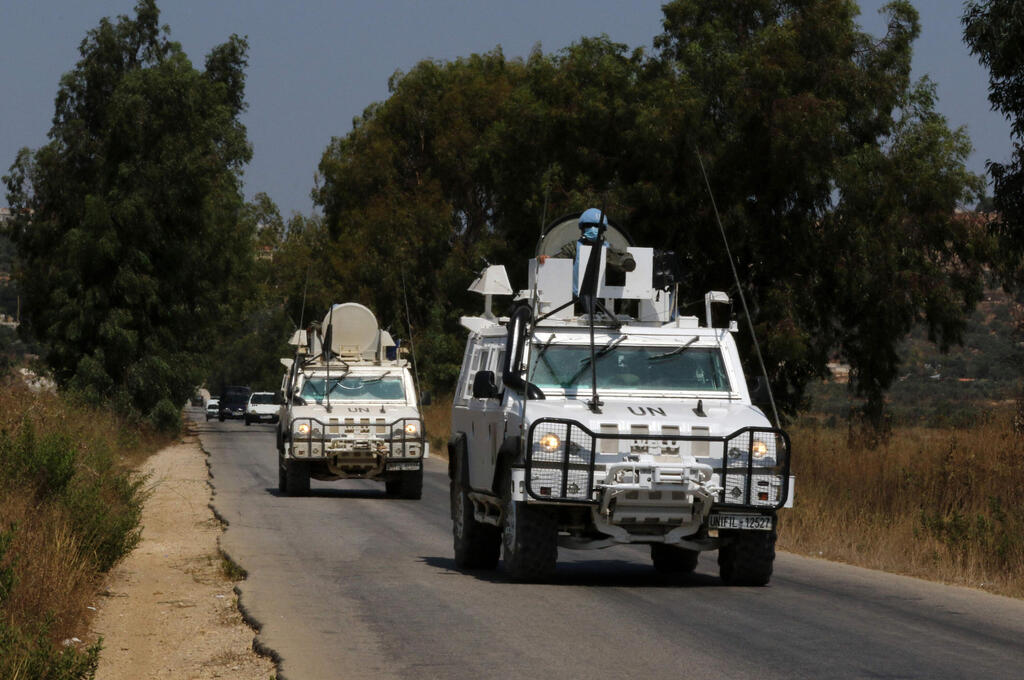Prime Minister Naftali Bennett said Sunday that Israel views the Lebanese government responsible for rocket fire launched from its territory, whether the Hezbollah terror group fired the weapons or not.
"The country of Lebanon and the army of Lebanon have to take responsibility for what happens in its backyard," Bennett told the weekly cabinet meeting, days after two waves of rocket strikes from Lebanon hit open areas in the north.
The first attack came Wednesday, when two rockets landed close to the border city of Kiryat Shmona, causing brush fires but no damage or injuries. The IDF responded with artillery fire and an IAF strike on southern Lebanon, saying the rockets were launched by Palestinians near the border.
3 View gallery


Foreign Minister Yair Lapid, left, and Prime Minister Naftali Bennett confer during Sunday's cabinet meeting in Jerusalem
(Photo: Ohad Zwigenberg)
Two days later, the Hezbollah terrorist organization fired some 20 rockets at open areas in the north, claiming it was retaliation for the airstrike. Israel again responded with artillery fire and said it was not seeking an escalation.
"It is less important to us whether it was a Palestinian organization or rogue factions who fired," Bennett said at the start of the weekly cabinet meeting Sunday morning.
"The State of Israel will not stand for rocket fire on its territory," he said.
Bennett also said that there had been an "awakening" of Lebanese civilians who object to Hezbollah actions and meddling by its sponsor Iran in their country at the height of Lebanon's worst-ever socioeconomic crisis.
3 View gallery


Residents of a Druze village preventing Hezbollah operatives from firing at Israel from their southern Lebanon community on Friday
The prime minister welcomed Friday's G7 statement accusing Iran of carrying out last month's attack on an Israeli-managed oil tanker that killed two British and Romanian crew members.
"All available evidence clearly points to Iran. There is no justification for this attack," the G7 said in a statement.
"We are seeing an increase in Iranian aggression at every part of the Middle East, on land, in the air and at sea," Bennett said Sunday.
"The Iranian regime is carrying out terror on international transport routes," he said. "Iran is a clear danger to regional stability and world peace, and the world must not accept it. The Iranians must understand that it is impossible to keep causing trouble without paying the price."
Meanwhile, the London-based Asharq Al-Awsat newspaper on Sunday quoted a senior Western diplomatic source as saying that the U.S. had pressured Bennett not to change the rules of engagement against Hezbollah ahead of the renewal of Iran nuclear talks next month in Vienna.
The pressure reportedly came due to concerns that Iran would use any attacks on its Lebanese proxy as an excuse to pull out of the talks.
3 View gallery


UN peacekeepers patrolling close to Lebanon's border with Israel on Saturday
(Photo: AFP)
The source also said that both sides had told the UN peacekeeping force in southern Lebanon that they were not interested in an escalation after the U.S. and France had put pressure on Israel and Lebanon respectively.
According to the report, the recent Hezbollah rocket fire was the Iranian-backed group testing Bennett's resolve after he took office in June.
Hezbollah leader Hassan Nasrallah warned Saturday evening the group could escalate its cross-border actions against Israel in the future.
Without mentioned the first salvo on Wednesday or the reported pressure on Lebanon from France, Nasrallah said the group had chosen to respond to the IAF strike by firing at unpopulated areas.

